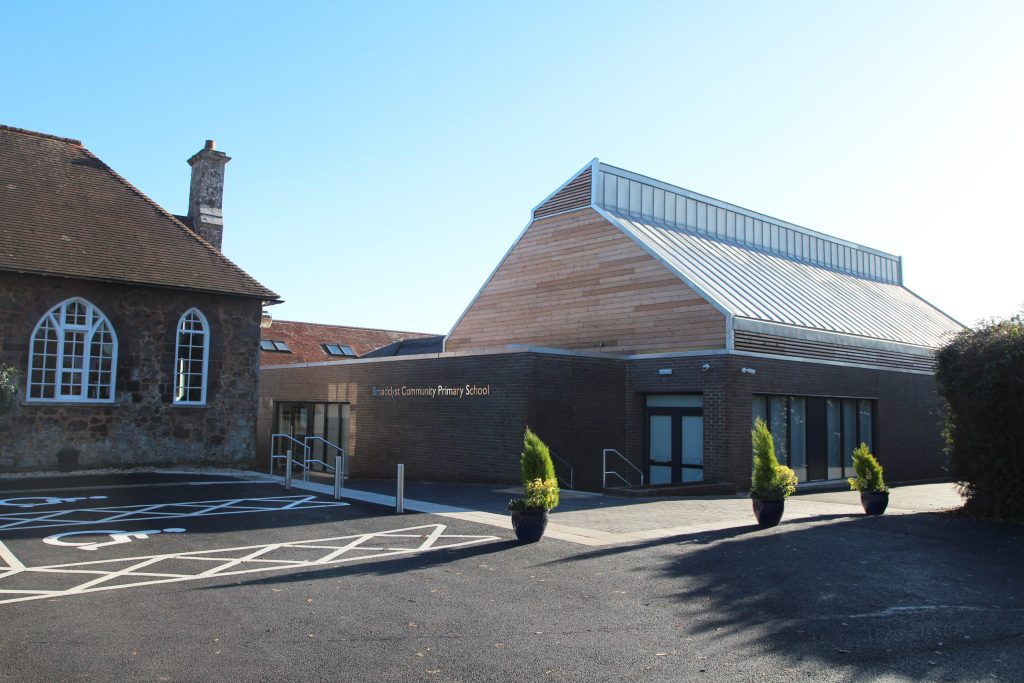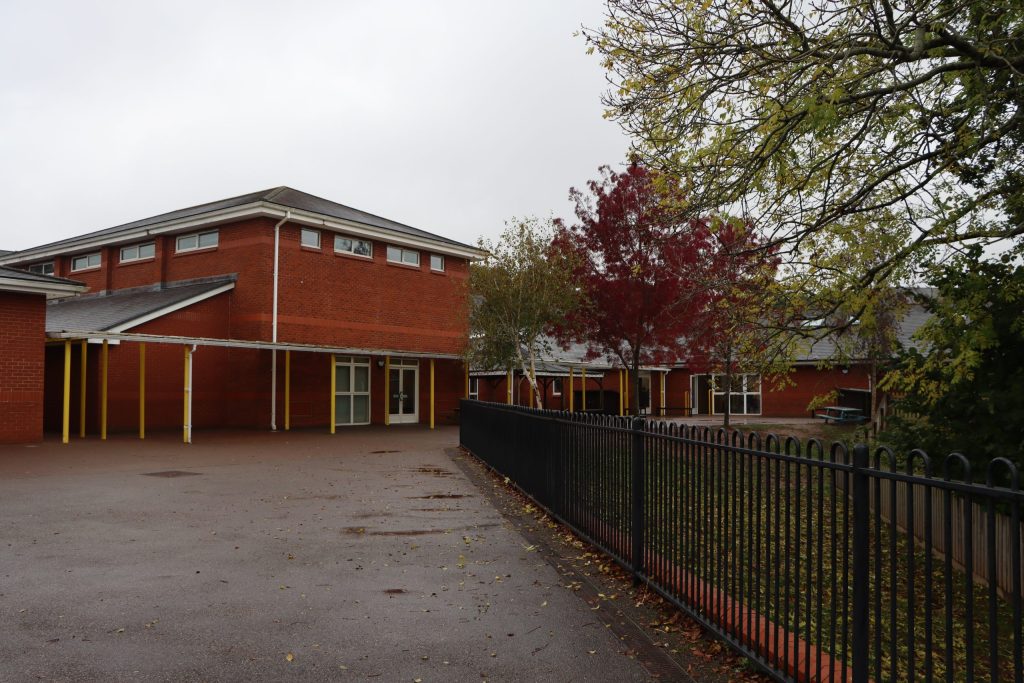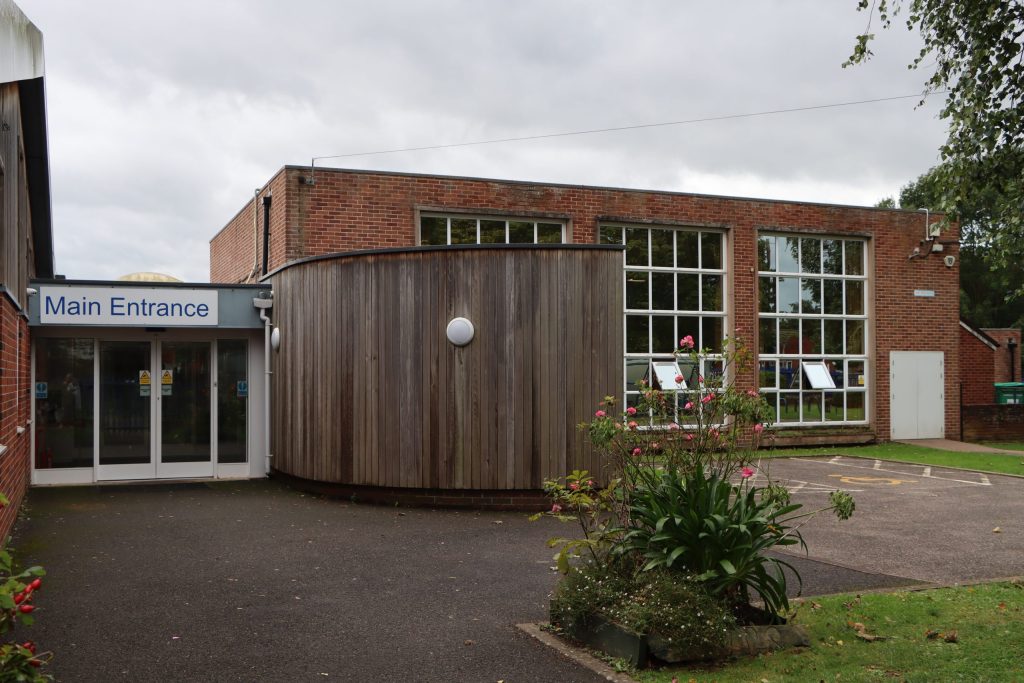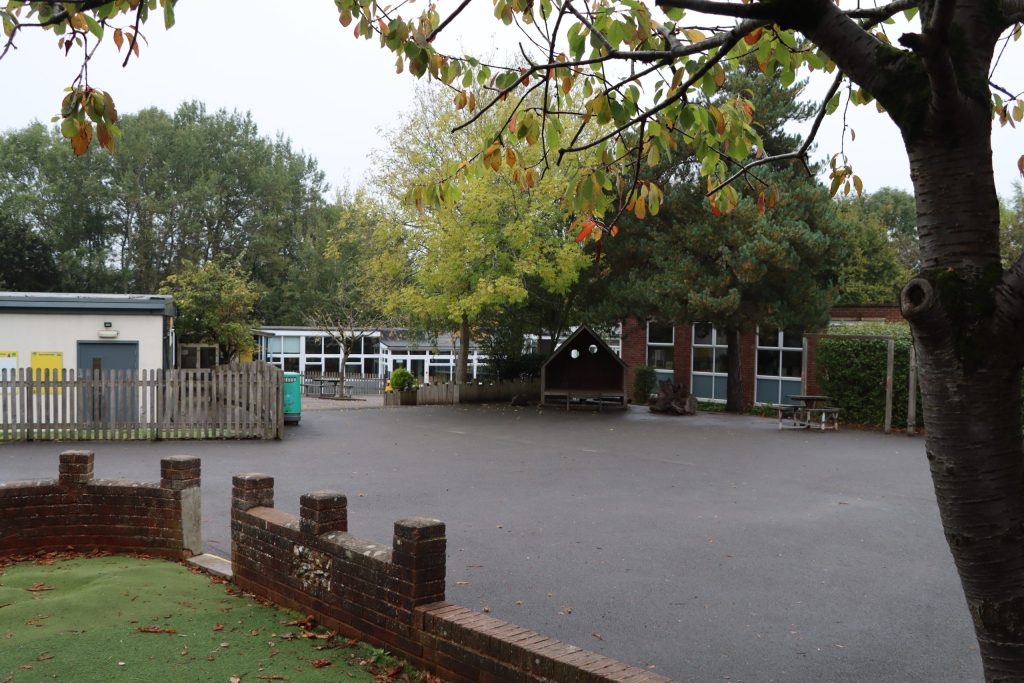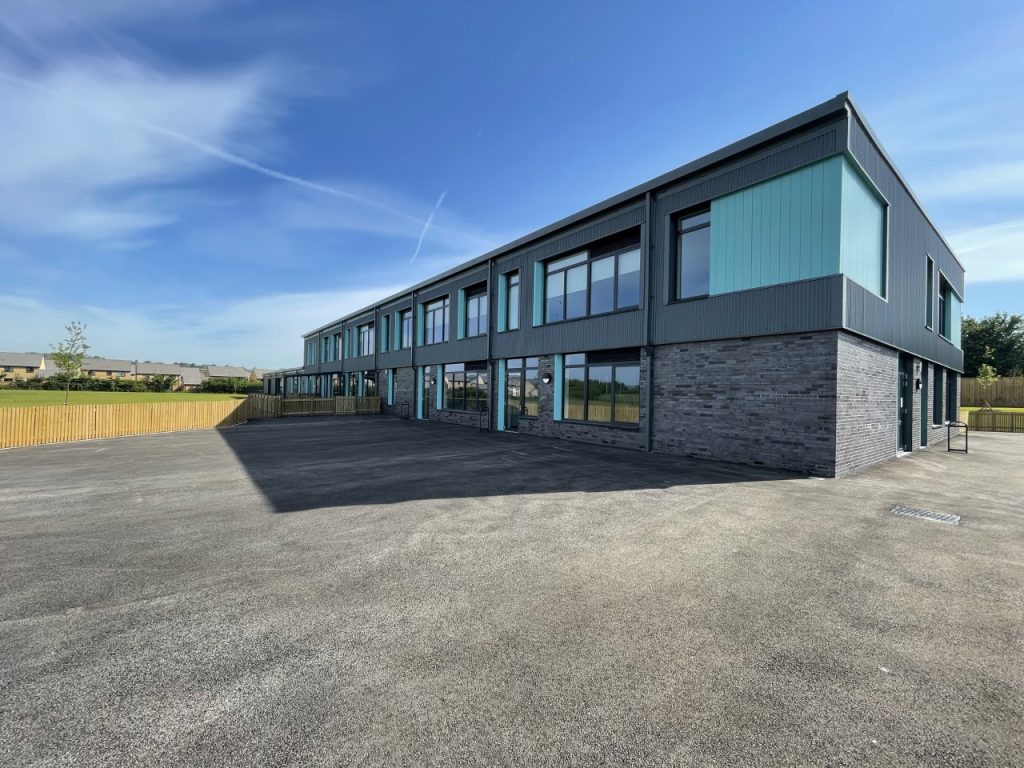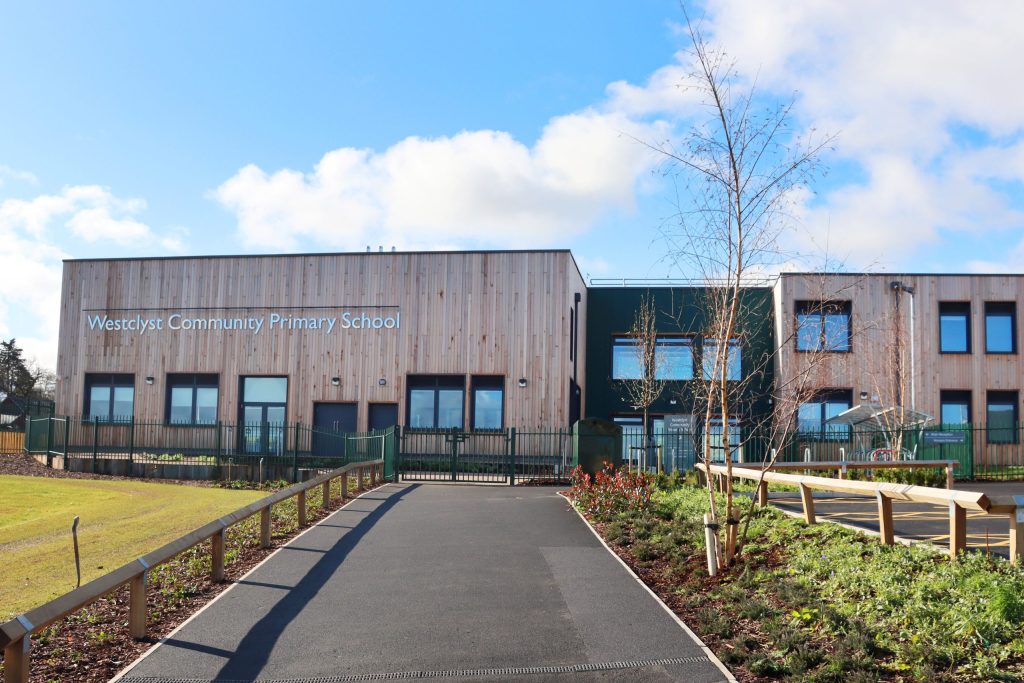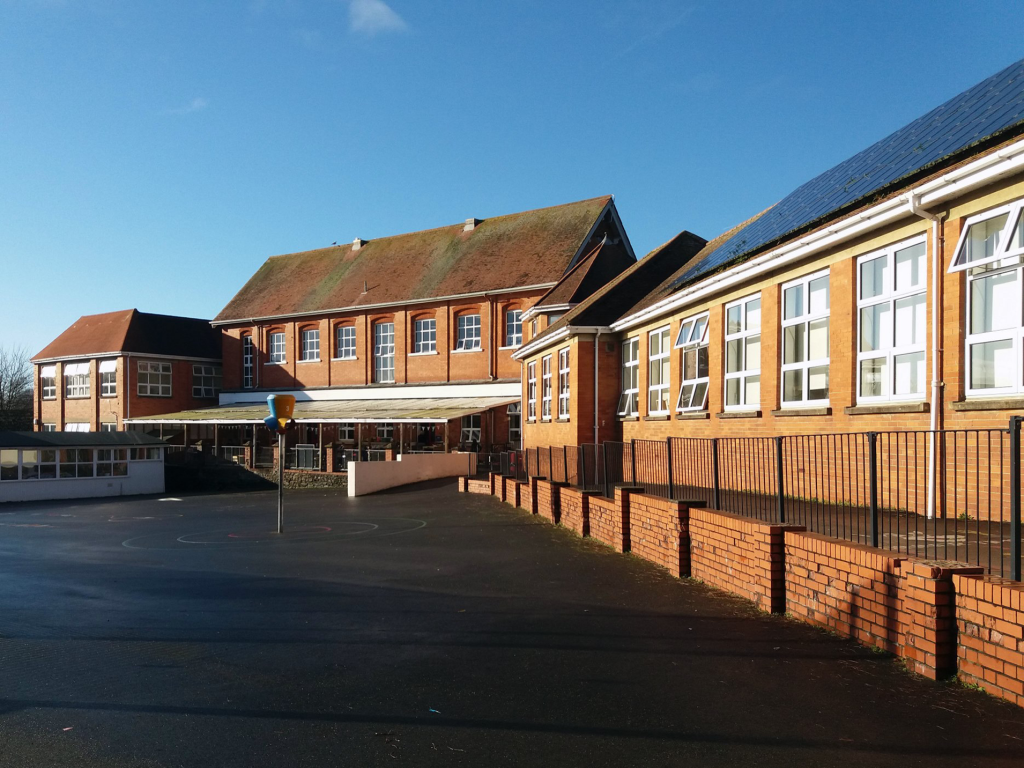Design and Technology
Our design and technology studies focus on teaching fundamental skills and knowledge through a themed approach, often connecting with other subjects. By doing so, we provide a real-world context for children to understand the purpose o their work and the criteria that lead to successful end products.
Our goal is the help children grasp the practical applications of design and technology in everyday life, recognising their significant role in todays workface.
Nursery
In Nursery, pupils begin to explore how things are made and how they work through hands on, creative play. They use a variety of materials, such as cardboard, fabric, and natural objects to build, join, and create. Children are encouraged to experiment with different tools like scissors, glue sticks, and tape, learning how to cut, stick, and shape materials safely. Through activities like junk modelling, cooking, and construction play, they begin to develop problem solving skills and confidence in their ideas. Pupils are supported to talk about what they are making and to explore how they might improve or change their designs.
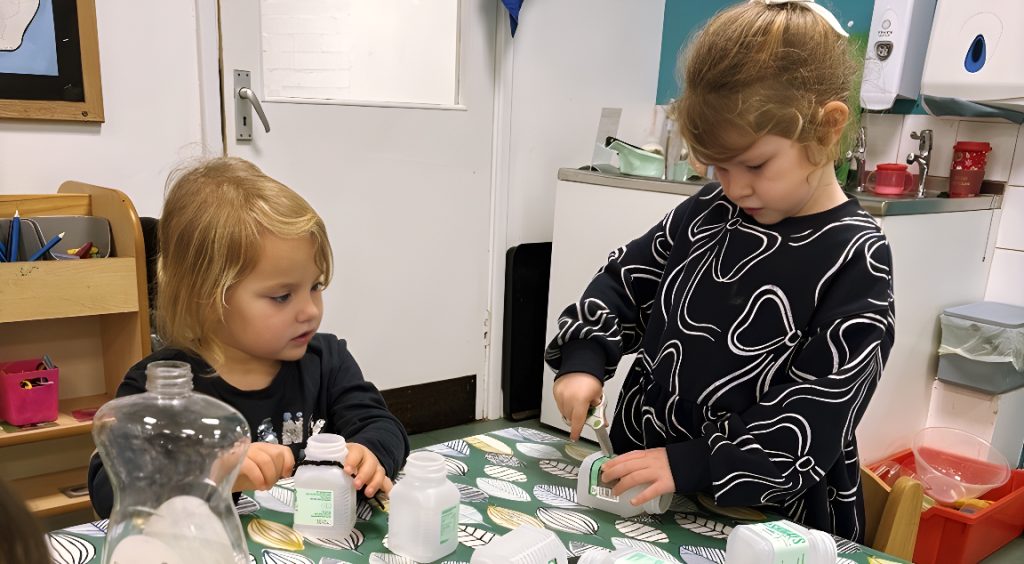
Expressive Arts and Design
The development of children’s artistic and cultural awareness supports their imagination and creativity. It is important that children have regular opportunities to engage with the arts, enabling them to explore and play with a wide range of media and materials. The quality and variety of what children see, hear and participate in is crucial for developing their understanding, self-expression, vocabulary and ability to communicate through the arts. The frequency, repetition and depth of their experiences are fundamental to their progress in interpreting and appreciating what they hear, respond to and observe.
Reception
In Reception, pupils build on their early experiences by planning and creating more purposeful designs. They are introduced to simple design processes, thinking about what they want to make, what materials they will use, and how they will put it together. Children explore how to join materials in different ways and use tools with increasing control and safety. They take part in cooking activities, learning to follow simple recipes and use kitchen tools appropriately. Pupils are encouraged to evaluate their creations, talk about what worked well, and suggest improvements. These experiences help develop creativity, independence, and practical problem solving skills.
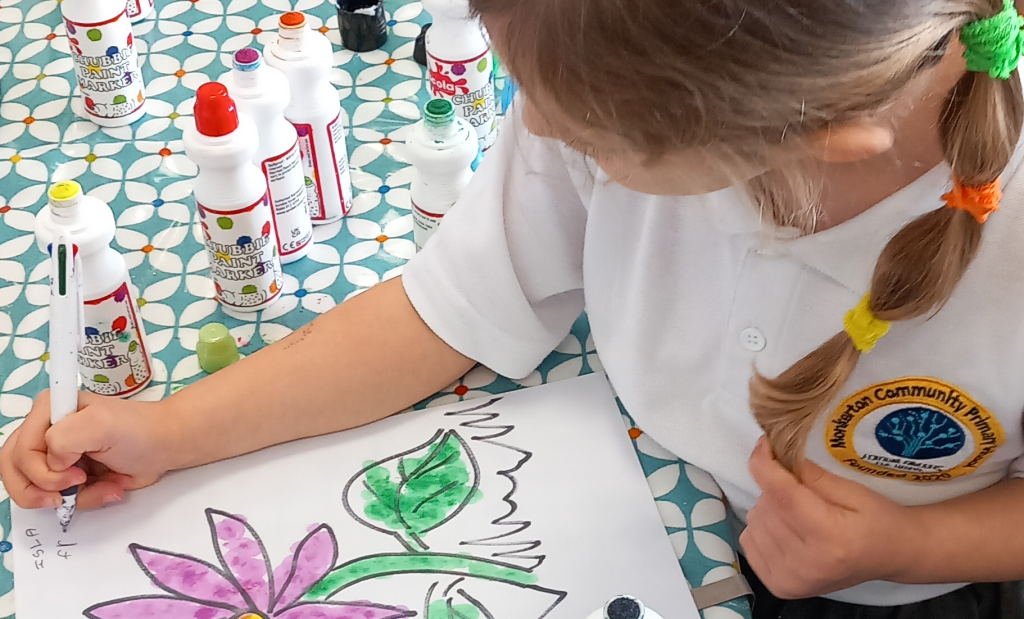
Expressive Arts and Design
The development of children’s artistic and cultural awareness supports their imagination and creativity. It is important that children have regular opportunities to engage with the arts, enabling them to explore and play with a wide range of media and materials. The quality and variety of what children see, hear and participate in is crucial for developing their understanding, self-expression, vocabulary and ability to communicate through the arts. The frequency, repetition and depth of their experiences are fundamental to their progress in interpreting and appreciating what they hear, respond to and observe.
Year 1
In Year 1, children explore how things are made and how they can be improved through imaginative, hands-on projects. As part of the Caring for Others project, they design and build a bed for a jelly baby, experimenting with different materials and learning how to make simple structures strong and stable. In food technology, they practise cooking hygiene while making sugar-free gingerbread men and take part in a carrot cake cook-off, following recipes and evaluating their creations. Children also explore mechanisms by designing pop-up posters with moving parts like spinning wheels and flaps. Later in the year, they prepare a Tudor banquet, learning how to safely chop vegetables and cook simple dishes like bread and pottage. These projects help children develop creativity, independence, and practical problem-solving skills.
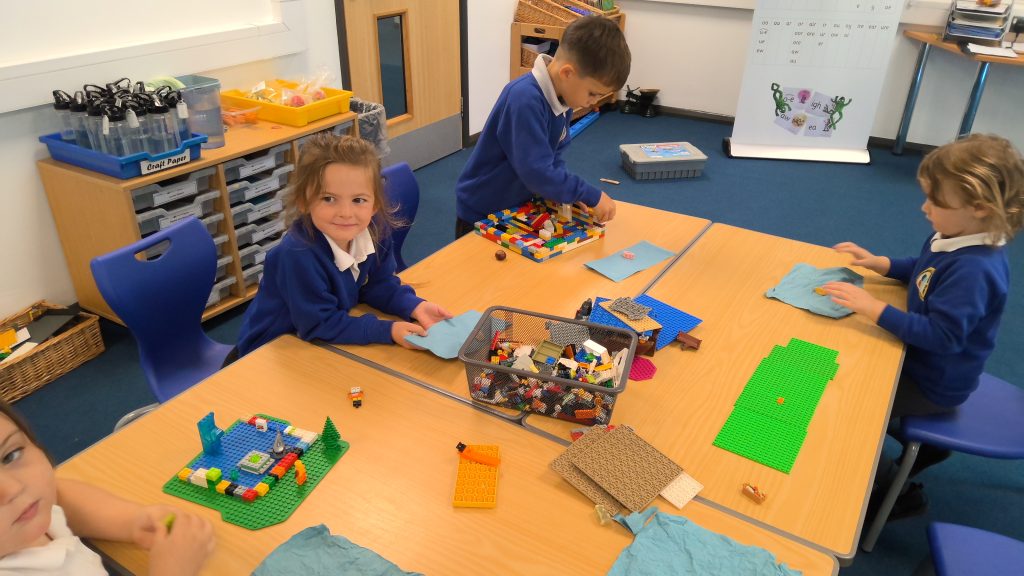
- Explore and experiment with different materials to build a bed for a jelly baby
- Learn basic assembling, testing, and evaluating techniques
- Design and create pop-up posters using moving parts such as flaps and spinning wheels
- Evaluate how mechanisms work and suggest improvements
- Follow a recipe and practise cooking hygiene to make sugar-free gingerbread men
- Grow and harvest carrots to bake a carrot cake for a cross-Trust bake-off
- Prepare food for a Tudor banquet, including chopping vegetables and baking bread
Year 2
In Year 2, children develop their creativity and problem-solving skills through a range of hands-on design and technology projects. They explore structures by designing, building, and testing escape boats linked to the Great Fire of London, learning how to make their creations strong, stable, and fit for purpose. In the Eggy Challenge, they design and test parachutes, thinking carefully about materials and how to protect a falling egg. As part of their learning in cooking and nutrition, children explore what makes a balanced meal and prepare dishes for the school menu. Later in the year, they make rocky road treats to sell at the school fête, combining cooking with enterprise and teamwork. Each project encourages children to design with purpose, evaluate their work, and take pride in what they create.
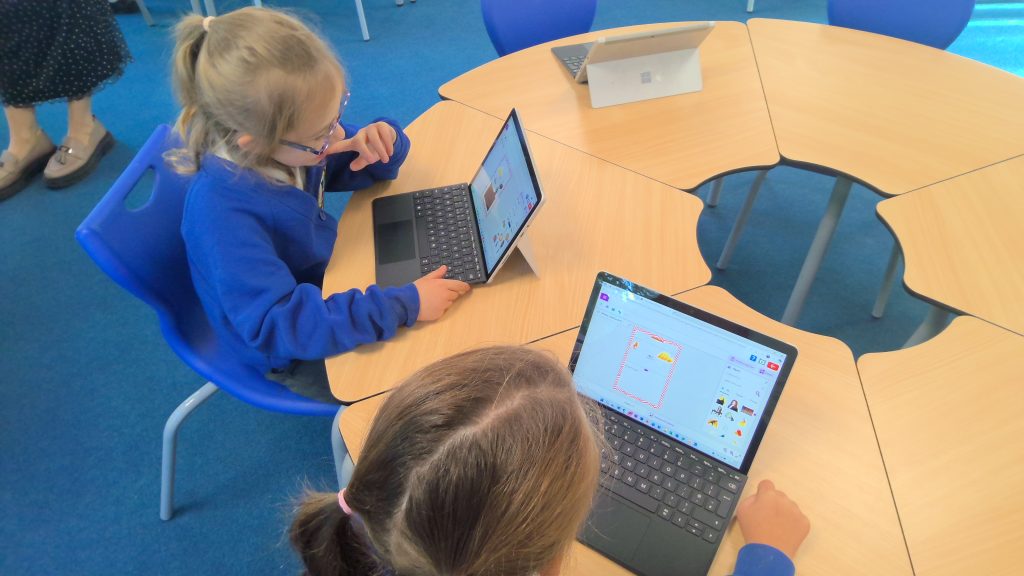
- Design, build, and test Great Fire of London escape boats for strength and buoyancy
- Construct Baby Bear’s chair, exploring stability and strengthening techniques
- Design and build a parachute for the Eggy Challenge, testing and evaluating its effectiveness
- Prepare WWII recipes such as eggless sponge, wartime loaf, and cabbage soup
- Design a balanced meal for the school menu using locally sourced ingredients
- Participate in community baking by making iced biscuits to share
Year 3
Year 3 pupils begin their Design & Technology journey by exploring creative ideas and practical skills. They celebrate the Harvest by making soup and later create salsa, guacamole, and tortilla bread for Mayan Day, linking food technology with cultural learning. Throughout the year, children experiment with materials and tools, and present their ideas through sketches and prototypes. Science Week offers hands-on investigations, such as exploring sound and constructing experiments. At the end of the year, the Eggy Challenge encourages teamwork and problem-solving as pupils design and build boats. Cooking and nutrition lessons help children understand healthy eating and where food comes from.
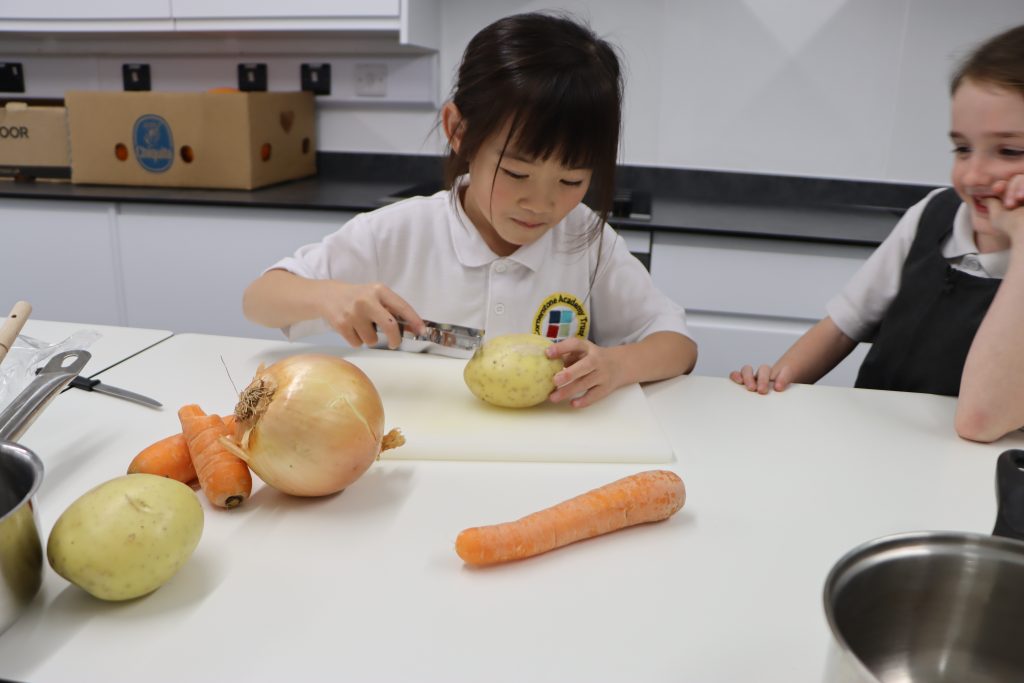
- Use research and design criteria to create innovative, functional products.
- Communicate ideas through discussion and annotated sketches.
- Select and use a range of tools and materials for cutting, shaping, joining, and finishing.
- Prepare soup for Harvest and Mexican dishes (salsa, guacamole, tortilla bread) for Mayan Day.
- Investigate and analyse existing products.
- Evaluate ideas and products against design criteria and peer feedback.
- Strengthen and reinforce simple structures.
- Begin to use basic mechanical systems.
- Apply basic computing skills to control products.
- Design and build boats for the Eggy Challenge.
- Understand and apply principles of a healthy, varied diet.
- Prepare and cook simple savoury dishes.
- Learn where and how ingredients are grown and processed.
Year 4
Year 4 pupils build on their skills by designing products for specific users and purposes. They make bread for Harvest and bake rock cakes for Victorian Day, connecting food technology with historical learning. Children use a wider range of tools and materials, and communicate ideas through prototypes and sketches. Science Week provides opportunities to investigate and experiment. The Eggy Challenge inspires creativity as pupils design and launch bottle rockets. Cooking and nutrition lessons focus on preparing savoury dishes and understanding seasonality.
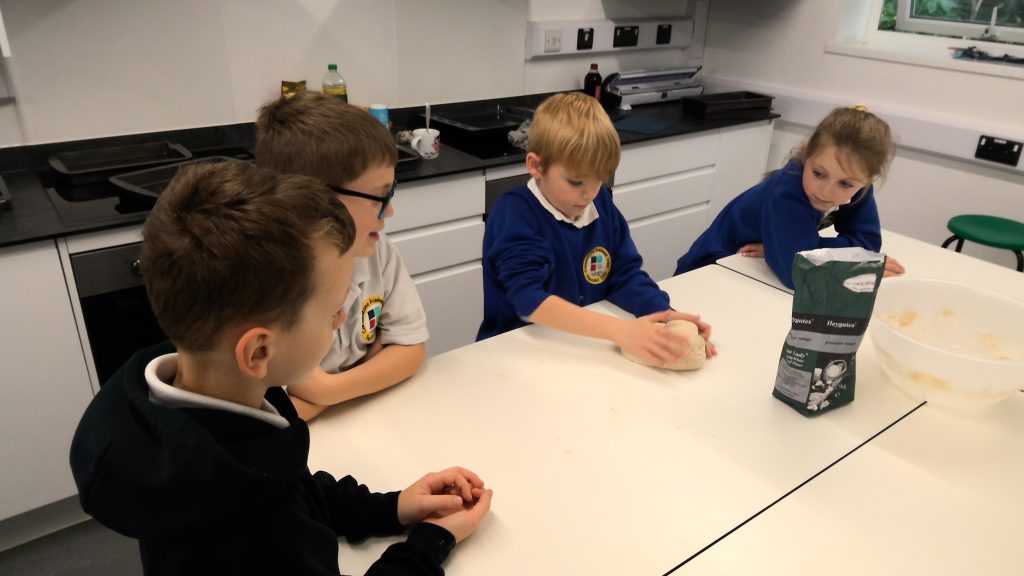
- Develop design criteria for products aimed at specific users.
- Model and communicate ideas using sketches and prototypes.
- Use a wider range of tools and equipment accurately.
- Prepare bread for Harvest and rock cakes for Victorian Day.
- Analyse a range of existing products.
- Evaluate products against criteria and consider improvements.
- Reinforce more complex structures.
- Use mechanical systems in products.
- Apply computing to monitor and control products.
- Design and build bottle rockets for the Eggy Challenge.
- Prepare and cook a variety of savoury dishes.
- Understand seasonality and food origins.
Year 5
Year 5 pupils deepen their design and technology skills, using research and advanced criteria to create innovative products. They test space suit materials for insulation and make astronaut ice cream during Science Week, linking DT with science. Children select materials for both function and aesthetics, and communicate ideas through diagrams and CAD. The Eggy Challenge encourages teamwork as pupils design and build zip lines. Cooking and nutrition lessons focus on healthy eating and a variety of cooking techniques.
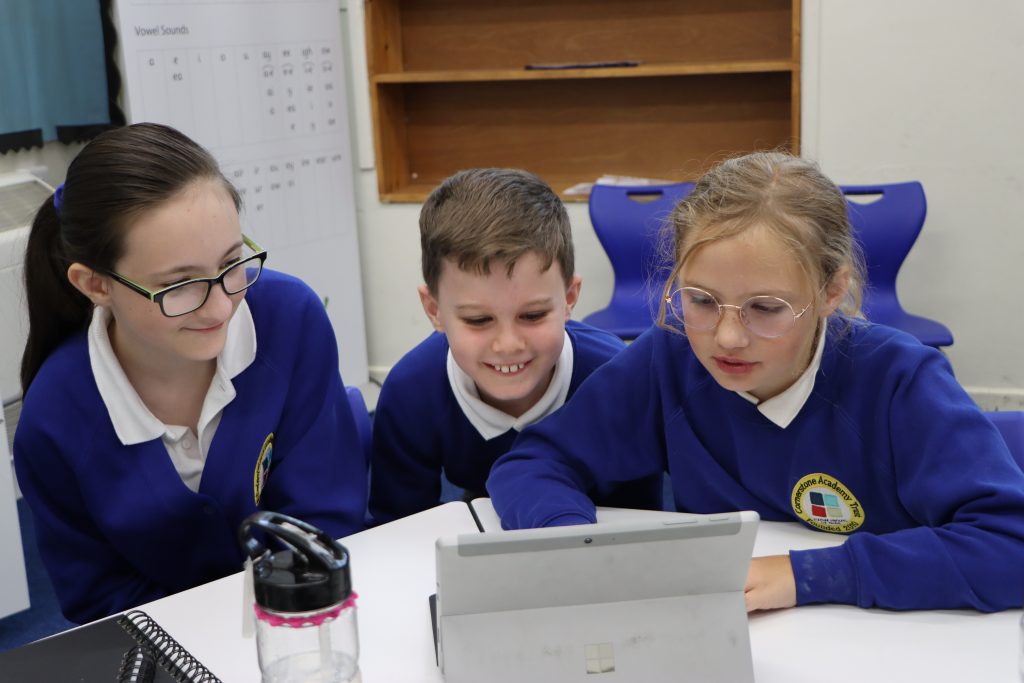
- Use research to inform design of innovative, appealing products.
- Communicate ideas through diagrams and computer-aided design.
- Select and use a wide range of tools and materials for practical tasks.
- Test space suit materials for insulation and make astronaut ice cream.
- Investigate and analyse products and their impact.
- Evaluate and improve products based on feedback and design criteria.
- Strengthen and reinforce complex structures.
- Use mechanical and electrical systems in products.
- Program and control products using computing.
- Design and build zip lines for the Eggy Challenge.
- Apply principles of healthy eating in cooking.
- Prepare and cook a range of savoury dishes.
- Understand food seasonality and sourcing.
Year 6
Year 6 pupils refine their design and technology skills by developing sophisticated products and creative new ideas. Throughout the year, they engage with the GEC, build boxes, prototypes, and invent entirely new items. Children use advanced tools and materials, and communicate ideas through exploded diagrams and CAD. The Eggy Challenge inspires innovation as pupils design and build buggies. Cooking and nutrition lessons focus on advanced techniques, nutrition, and understanding the journey of ingredients from source to plate. They take part in the Year 6 Cook Off challenge, where all pupils learn to make a lasagne before judging. After this, subsequent rounds see children making side salads and chicken kebabs and pavlovas.
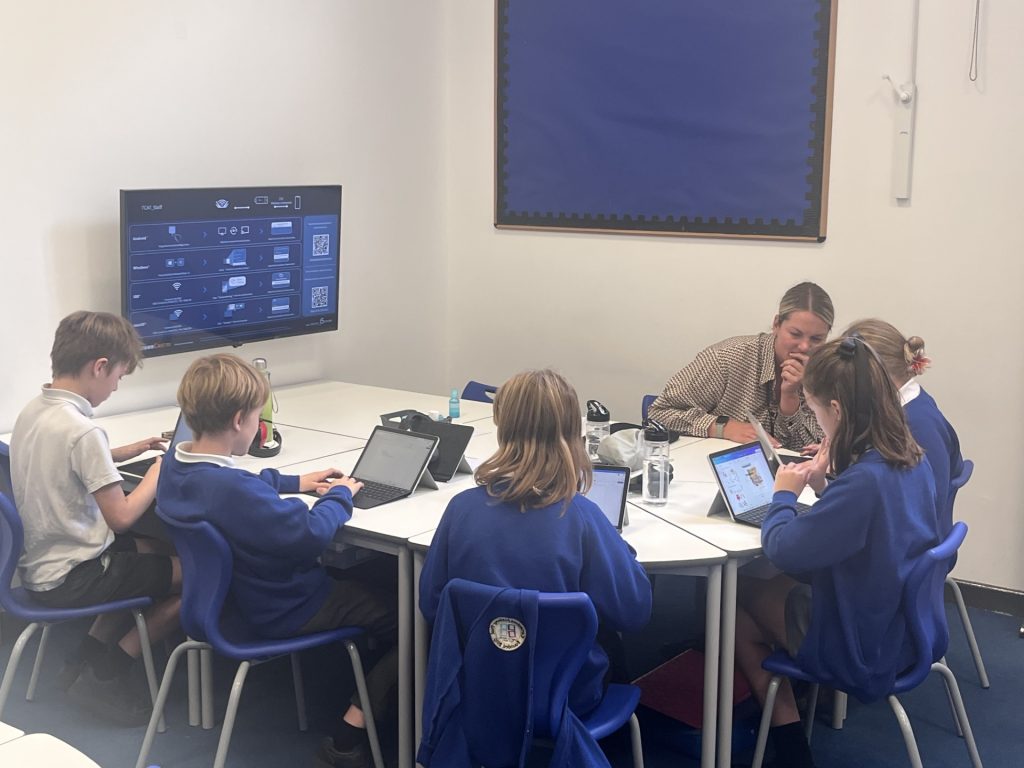
- Develop and refine design criteria for functional, innovative products.
- Communicate ideas using exploded diagrams, prototypes, and CAD.
- Select and use advanced tools and materials for precise practical tasks.
- Build boxes, prototypes, and creative new items.
- Take part in the Cook Off, making lasagne, kebabs, and pavlovas.
- Analyse and evaluate products, considering user needs and design impact.
- Reflect on feedback to improve designs and finished products.
- Apply understanding to reinforce and strengthen advanced structures.
- Integrate mechanical and electrical systems in products.
- Use computing to program, monitor, and control products.
- Design and build buggies for the Eggy Challenge.
- Prepare and cook a variety of savoury dishes using advanced techniques.
- Apply principles of nutrition and healthy eating.
- Understand seasonality and the journey of ingredients from source to plate.
Contact: admin@tcat.education
Phone: 01392 304040
© The Cornerstone Academy Trust 2025



